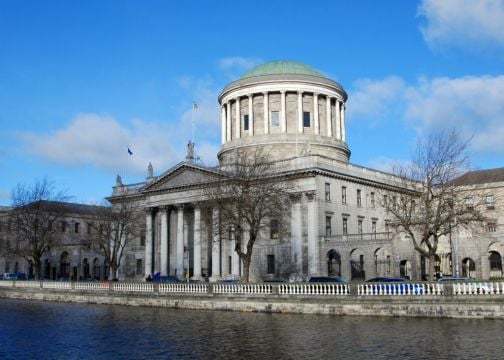Leitrim County Council has sourced emergency accommodation for a family who claim they have nowhere to go because they cannot stay at a property which they claim is harming their health, the High Court has heard.
The court also heard that the council have offered them a transfer to another property, but that house will not be ready until a date in September.
Thomas and Louise Stokes, who along with their five young children, had sued the Council claiming that they can no longer reside at a property provided for them by the local authority in Mount Temple, Carrick on Shannon, Co Leitrim.
They claimed that they had to leave that house, and most recently had been staying with relatives.
However, the family, represented by Nuala Egan SC, claim they are currently in dire need of suitable accommodation.
Earlier this month, the family launched proceedings challenging the council's decision that they are not homeless.
They also seek orders quashing the council's alleged refusal to agree to their request for a social housing transfer, and that they be provided with emergency family-appropriate accommodation that is fit for human habitation.
They further seek declarations including that the council's decision that they are not homeless, is irrational unreasonable, disproportionate and in breach of the applicants' Constitutional rights, rights under the European Convention on Human Rights, and the EU's Chater of Fundamental Rights.
When the matter returned before Mr Justice Rory Mulcahy during Tuesday's vacation sitting of the High Court, counsel for Leitrim County Council Christopher Hughes Bl said that his client had sourced emergency accommodation for the family, which will be available to them in the coming days.
Counsel also told the court that the family have been offered a transfer to another property, which they have yet to decide on.
Counsel, who said his client needed some time to fully respond to the claims against it, said it was hoped that this transfer offer could resolve much of what has been raised in the proceedings.
In reply, Ms Egan for the family said that while they welcomed the provision of emergency accommodation, the family needed more information about the suitability of the new property being offered to them before they can accept the transfer.
In the meantime, they were anxious for the case to remain live before the courts.
Mr Justice Mulcahy agreed to adjourn the matter to a date in early September.
In their action, the family claims that since they moved into the Mount Temple property five years ago their health has been adversely affected due to dampness and mould in the house.
They claim that the mould was so bad that they were forced to sleep downstairs rather than in the upstairs bedrooms of the property.
They complained about the problem to the local authority. They also claim that the council carried some works to alleviate the problems, such as improve ventilation in the house and remove the mould.
Those works, the family claim, were insufficient, and that when they had lived there the property was not fit for human habitation.
Their children's health was severely affected, and some of them needed to be hospitalised due to respiratory problems.
They left the property for periods and went to live with relatives. They did return, but claim that problems persisted, and left again earlier this year.
The family claims they are homeless and require emergency accommodation.
They claim that the council does not accept this and has failed to lawfully consider their requests for a social housing transfer.
As a result, the family, who are members of the Irish Traveller Community, have brought High Court Judicial Review Proceedings against the Council.
In their proceedings the family seeks various orders and declarations from the court, including an order quashing the council's decision that the family are not homeless within the mean of the 1998 Housing Act.







